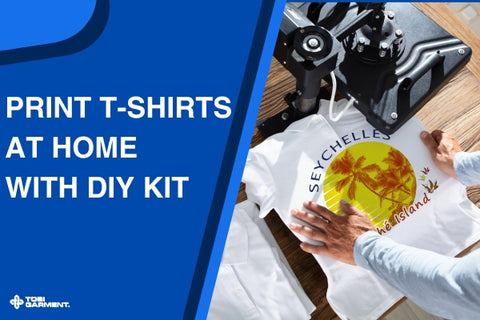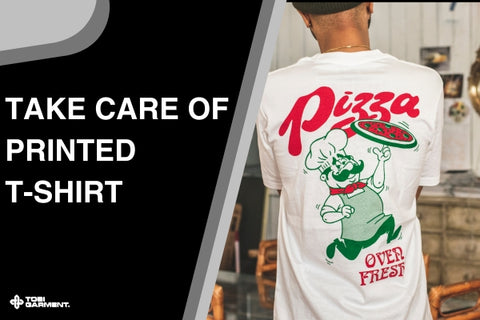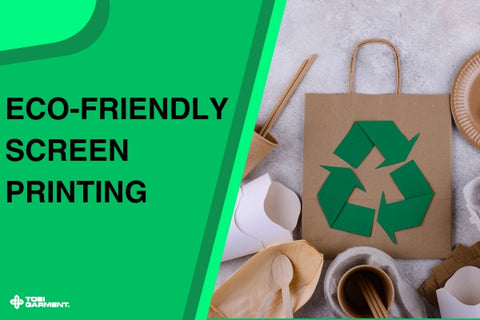
In this guide, we'll explore the exciting world of DIY t-shirt printing, equipping you with the knowledge and skills to create personalized masterpieces from the comfort of your own home.
How to Print a T-Shirt at Home with a DIY Kit
Printing your own t-shirts at home is a rewarding and creative endeavor. With the right tools and techniques, you can transform plain shirts into one-of-a-kind fashion statements. Let's dive into the step-by-step process:
Gather Your Supplies
Before you begin, ensure you have the necessary materials:
- T-shirts: Choose high-quality shirts made from cotton or a cotton blend for optimal results.
- Transfer paper: Select transfer paper specifically designed for the printing method you'll be using (e.g., iron-on, inkjet, laser).
- Printer: A printer compatible with your chosen transfer paper is essential.
- Iron or heat press: A reliable iron or heat press will be needed to apply the transfer paper to the shirt.
- Design software (optional): If you want to create your own designs, design software like Canva, Adobe Photoshop, or GIMP can be helpful.
Choose Your Design
The design is the heart of your t-shirt. Whether you're inspired by your favorite band, a meaningful quote, or a personal illustration, let your creativity soar. Consider these tips:
- Inspiration: Look for inspiration in your hobbies, interests, or current trends.
- Simplicity: A simple design often has a greater impact.
- Color palette: Choose colors that complement the shirt's fabric and your personal style.
- Font selection: Select fonts that are legible and enhance the overall design.
Prepare Your T-Shirt
Proper preparation is key to ensuring a successful print. Follow these steps:
- Washing: Wash the t-shirt to remove any sizing agents that might interfere with the transfer process.
- Drying: Allow the shirt to air dry completely.
- Ironing: Iron the shirt to smooth out wrinkles and create a smooth surface for the transfer.
Read more: Eco-Friendly Screen Printing: Your Guide to Sustainable Style
Apply the Transfer Paper
Now it's time to bring your design to life:
- Positioning: Carefully place the transfer paper on the shirt, ensuring it's aligned correctly.
- Ironing or heat press: Follow the manufacturer's instructions for ironing or using a heat press. Apply even pressure for the recommended time.
- Peeling: Allow the transfer to cool completely before carefully peeling off the carrier sheet.
Care for Your T-Shirt
To maintain the quality of your printed t-shirt:
- Washing: Wash inside out in cold water with a gentle detergent.
- Drying: Air dry or tumble dry on low heat.
- Ironing: Iron inside out on a low setting.
Best DIY T-Shirt Printing Kits
If you're new to t-shirt printing or prefer a convenient all-in-one solution, consider purchasing a DIY kit. Here are some popular options:
Comparison of popular kits
- Cricut Iron-On Vinyl Kit: This kit includes a Cricut cutting machine, iron-on vinyl, and design software, making it ideal for those who want to create intricate designs.
- Silhouette Cameo Heat Transfer Vinyl Kit: Similar to the Cricut kit, the Silhouette Cameo offers precision cutting and a wide range of vinyl options.
- Generic DIY T-Shirt Printing Kits: These kits often include basic supplies like transfer paper, iron-on vinyl, and a squeegee, making them suitable for beginners on a budget.
Factors to consider when choosing a kit
When selecting a kit, consider the following factors:
- Ease of use: Choose a kit that aligns with your skill level and experience.
- Versatility: Consider if you want to experiment with different printing methods or materials.
- Price: Set a budget and compare prices among different kits.
Read more: The Ultimate Guide to Screen Printing T-Shirts
Design Ideas for Your DIY T-Shirt
The possibilities for t-shirt designs are endless. Here are some inspiring ideas:
Popular design themes
- Quotes: Express your favorite sayings or motivational messages.
- Logos: Showcase your favorite bands, sports teams, or brands.
- Illustrations: Create original artwork or use stock images.
- Typography: Experiment with different fonts and styles.
Tips for creating a unique design
- Personalization: Add your name, initials, or a special date.
- Color combinations: Choose colors that complement each other and your personal style.
- Typography: Select fonts that are legible and enhance the overall design.
- Inspiration: Look for inspiration in nature, art, or your hobbies.
Design software recommendations
If you're looking to create your own designs, consider using design software like:
- Canva: A user-friendly online tool with pre-made templates and design elements.
- Adobe Photoshop: A powerful professional tool for advanced designers.
- GIMP: A free and open-source alternative to Photoshop.
Read more: How to Create T-Shirt Designs Without Drawing
Troubleshooting Common T-Shirt Printing Issues
Even the most experienced DIYers may encounter challenges. Here are some common issues and solutions:
Peeling or fading transfer paper
- Cause: Improper application or low-quality materials.
- Solution: Ensure you follow the manufacturer's instructions carefully and use high-quality transfer paper.
Uneven or blurry prints
- Cause: Incorrect pressure or alignment.
- Solution: Apply even pressure during the transfer process and carefully align the transfer paper.
Color distortion
- Cause: Low-quality transfer paper or improper settings.
- Solution: Use high-quality transfer paper and adjust your printer settings as needed.
Read more: Elevate Your Brand with Custom Neck Labels
Conclusion
DIY t-shirt printing offers a fun and rewarding way to express your creativity and personalize your wardrobe. By following these guidelines and experimenting with different techniques, you can create unique and stylish t-shirts that reflect your individuality. So, gather your supplies, unleash your imagination, and embark on a creative journey of DIY t-shirt printing!
FAQ
Can I use a regular iron for t-shirt printing?
While a regular iron can be used, a heat press provides more consistent and even heat, resulting in better quality prints.
What type of transfer paper should I use?
The best type of transfer paper depends on your printer and the design you want to create. Iron-on transfer paper is commonly used for home t-shirt printing.
How long does it take to print a t-shirt?
The time it takes to print a t-shirt varies depending on the design complexity and the printing method used. However, most DIY t-shirt printing projects can be completed within an hour or two.
Can I wash my printed t-shirt in the washing machine?
Yes, you can wash your printed t-shirt in the washing machine, but it's recommended to wash it inside out in cold water with a gentle detergent to preserve the print quality.
Read more related posts from Tobi Garment:



